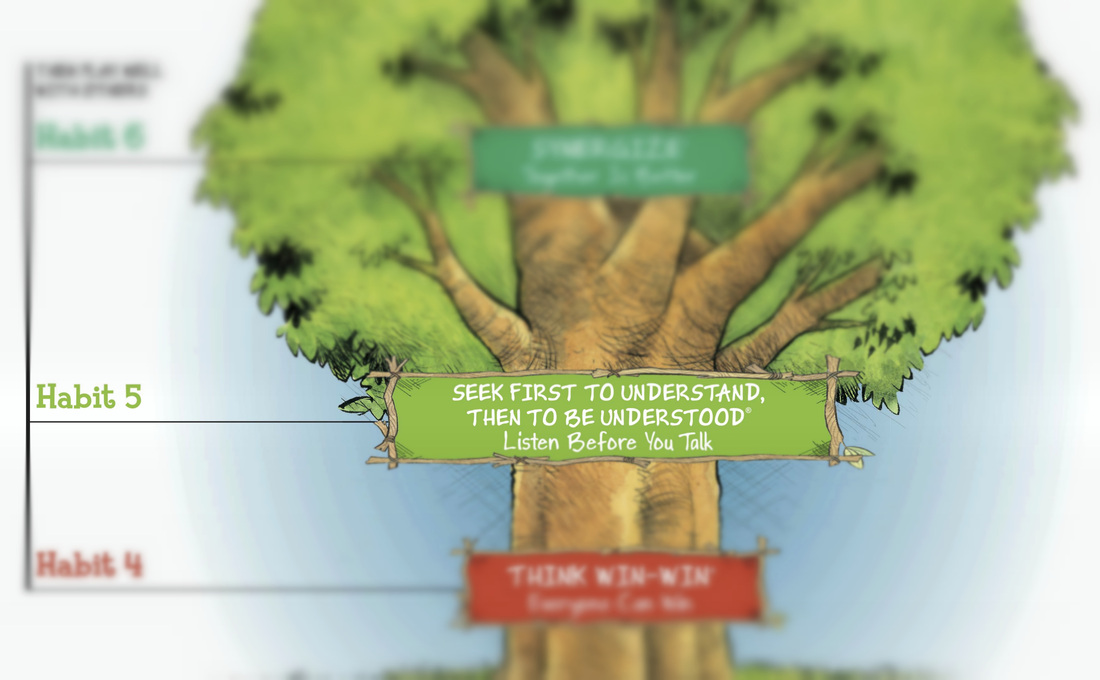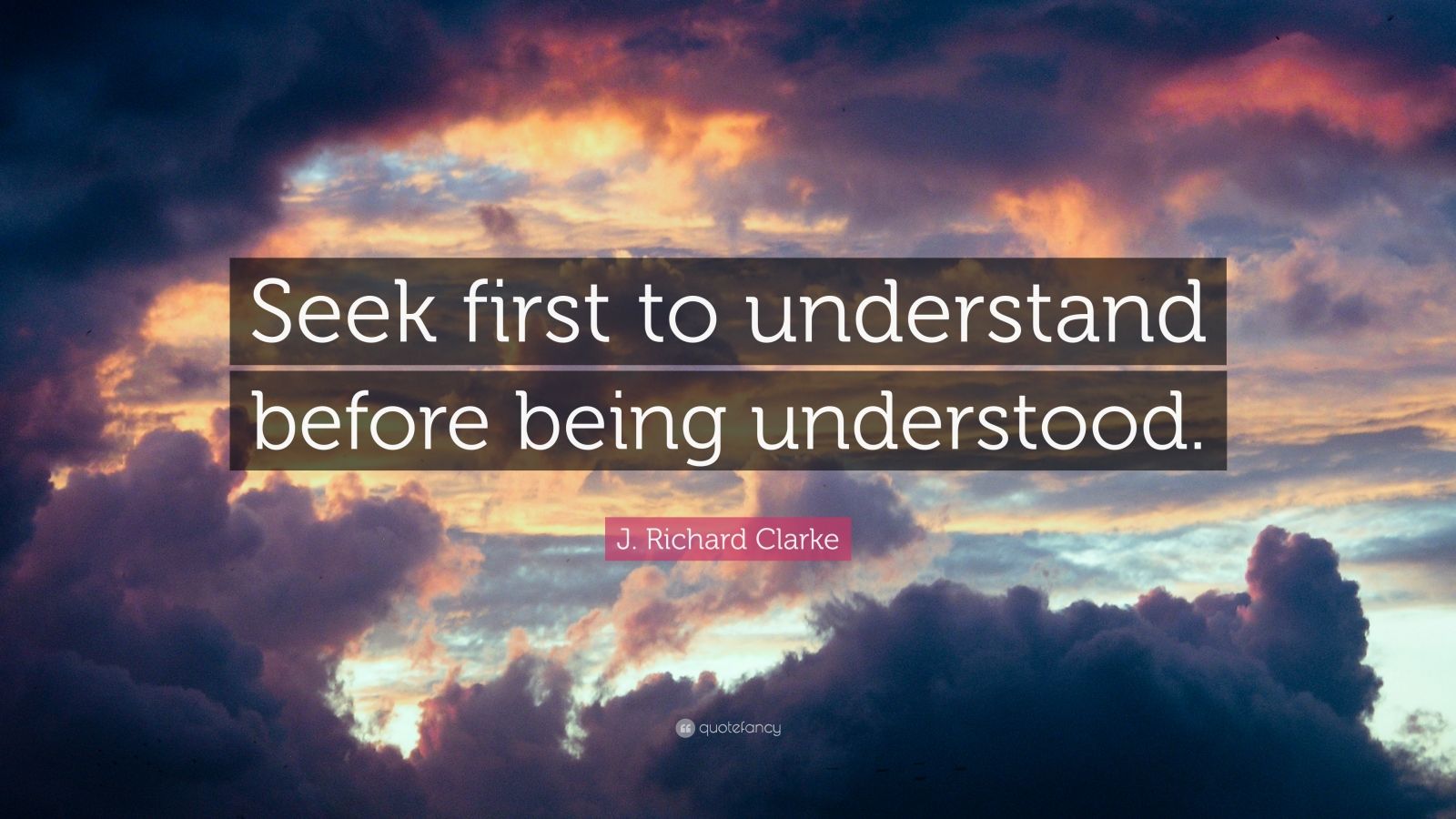
We don’t judge and pre-empt what they will say, and we definitely don’t jump in to immediately give our view.Ĭovey suggests that good listening should be “active, not passive” and involve a lot of nodding by the listener, as if they were entering into an agreement with them (rather than just passively absorbing information). The point is, we’re only really listening when we are listening attentively to that person, and we are responding to a frame of reference that the speaker has mentioned. This is often referred to as empathic listening.
SEEK TO UNDERSTAND BEFORE BEING UNDERSTOOD FULL
But it’s a façade we haven’t grasped the conversation at allģ – Selective Listening – We pick out some of the conversation but not the whole thing, as we move from internal to a brief external focus, before returning to our own thoughtsĤ – Attentive Listening – We listen to it all and understand the context, the full conversation and its meaning. 4 Levels of ListeningĬovey identifies four key levels of listening:ġ – Ignoring – We are just caught up in our own thoughts and don’t take anything in – we miss the point completelyĢ – Pretending – We’re still engaged in our own thoughts and nod and smile away. Poor listeners are either speaking or preparing to speak and don’t effectively seek first to understand.

Your focus is still on you and your own thoughts. They are intent on remembering what to say and itching to say it.īut again, this approach means that you’ll miss the context of the conversation and will fail to grasp it entirely. As the conversation unfolds, the recipient is thinking of what they want to say next. Empathic Listening With The Intent to ReplyĪdditionally, most people tend to listen with the intent to reply.


That’s why habit 5: Seek first to understand, then to be understood is the second interpersonal habit of Covey’s 7 habits. It’s important that we master this skill. These issues can also cause misunderstanding with people who matter most: our family members friends…even employees at work where positive relationships lead directly towards better productivity levels, often cited by research studies like this one from Gallup. It’s safe to say that the above are not the foundations of building trust, commitment, rapport, respect, relationships. It probably made you feel angry and upset that they didn’t care what you had to say or that their time and thoughts were more important than yours. Think back to a situation when you were talking to someone, and they weren’t present. The reality is that we all know if someone is listening to us or going through the motions.

This problem is a common thing in life and also in the workplace.ĭuring a conversation, how many times has your mind been on other things? We are normally good at it too often doing this within the first sentence of the conversation. We can get caught up in our own internal world of thoughts, ego, judgements, and conclusions, often before that person has had a chance to express their view and problems. We tend to think we know what the other person is going to say, and so our minds wander. The problem is that most of us don’t actually listen to others. This avoids any preconceptions you may have, reduces the chance of conflict and allows you to listen intently, whilst developing respect and trust. Once you understand their story, then and only then you reply, based on what they have said. This is normally referred to as empathic listening. Covey identified that in order to build deep relationships and lead with clarity, you need to first truly understand what people are both saying and feeling when in conversation. Habit 5: seek first to understand then to be understood is one of the habits developed by Stephen Covey in the book, The 7 Habits of Highly Effective People. In this article, we will explore how you can use it in your daily life to build rapport and develop deep relationships. This is Habit 5 of Stephen Covey’s 7 Habits of Highly Effective People and it seems easy enough to do on the surface, but for many people, it can be a difficult habit to implement. Seek to understand, then to be understood.


 0 kommentar(er)
0 kommentar(er)
